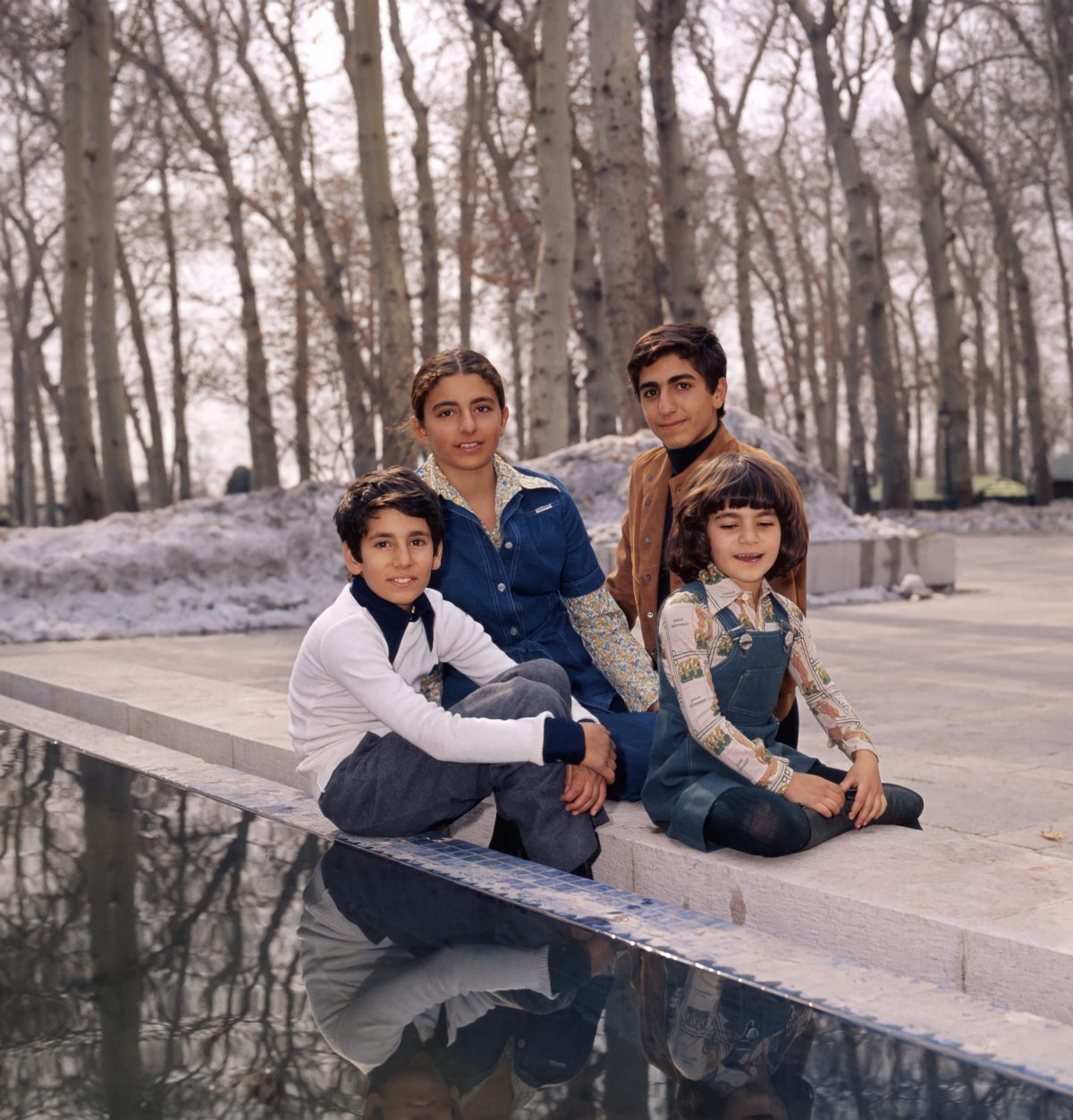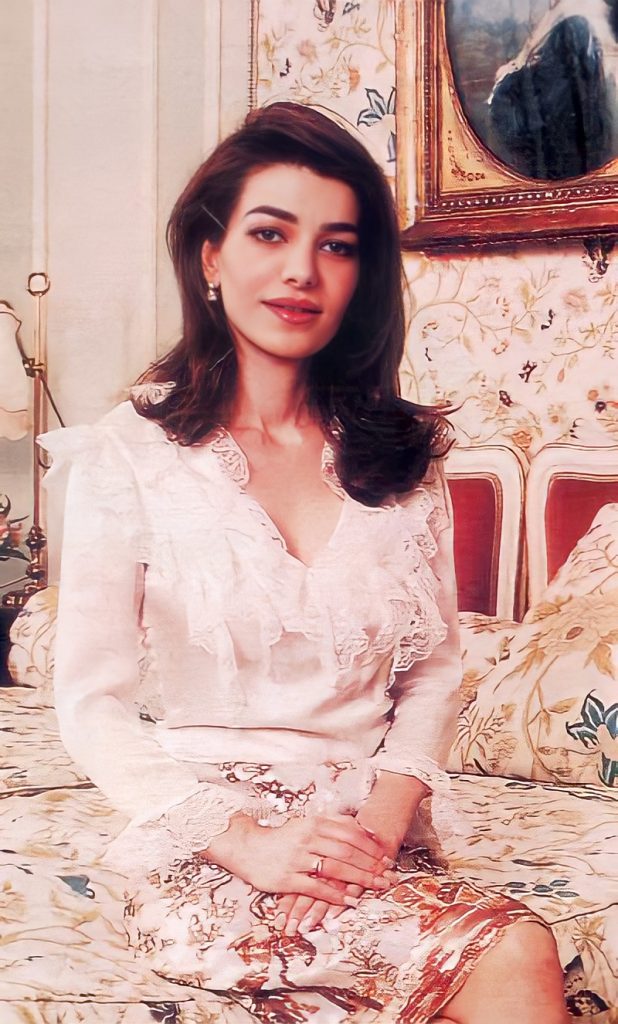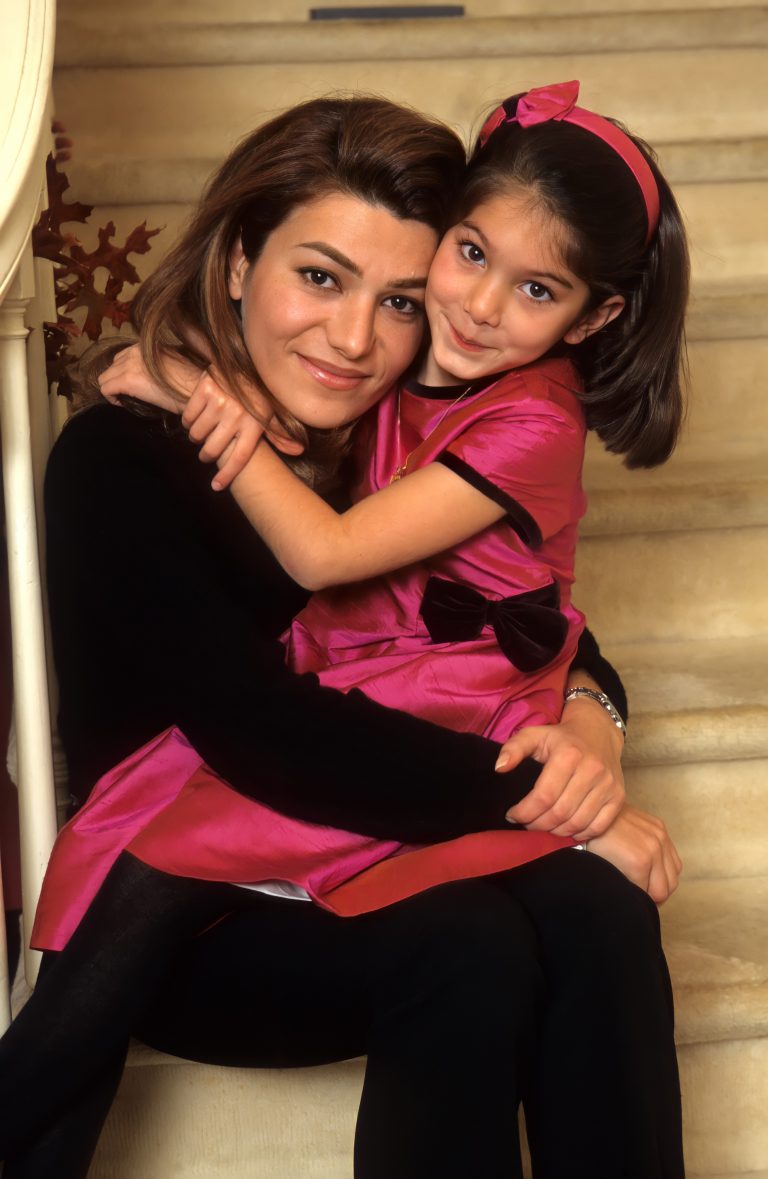Unraveling The Story: What Happened To Princess Leila Pahlavi?
The story of Princess Leila Pahlavi, the youngest daughter of Iran's last Shah, Mohammad Reza Pahlavi, is a deeply touching one, really. Her life, quite literally, spanned a period of immense change and personal upheaval, marking her as a figure whose journey still prompts many questions for people today. Many wonder, you know, what truly transpired in her life, especially after the dramatic events that reshaped her family's world.
Born into a life of privilege and royal duty, her existence took a stark turn with the Iranian Revolution. This pivotal moment meant a sudden departure from her homeland, pushing her and her family into an unexpected life of exile. It's a situation that, in some respects, would shape the rest of her days.
This article aims to shed some light on the path Princess Leila walked, exploring the challenges she faced and, ultimately, addressing the somber question: What happened to Princess Leila Pahlavi? We'll look at her life, the events that unfolded, and the impact she left behind, even in her brief time.
Table of Contents
- Biography and Personal Details
- Early Life and the Shadow of Exile
- Finding a Path Abroad
- The Weight of the Past
- The Final Chapter: What Happened to Princess Leila Pahlavi?
- A Lasting Memory
- Frequently Asked Questions
- Conclusion
Biography and Personal Details
Princess Leila Pahlavi was a member of the Pahlavi dynasty, which ruled Iran until 1979. Her life, though short, was certainly full of significant historical moments, and you know, personal struggles too. Here’s a quick look at some of her key details:
| Detail | Information |
|---|---|
| Full Name | Leila Pahlavi |
| Date of Birth | March 27, 1970 |
| Place of Birth | Tehran, Iran |
| Parents | Mohammad Reza Pahlavi (Shah of Iran) and Farah Pahlavi (Shahbanu of Iran) |
| Siblings | Reza Pahlavi, Farahnaz Pahlavi, Ali Reza Pahlavi |
| Education | Brown University (studied literature), various private schools in the U.S. and Europe |
| Profession | Model, student, humanitarian interests |
| Date of Passing | June 10, 2001 |
| Place of Passing | London, United Kingdom |
| Burial Place | Cimetière de Passy, Paris, France |
Early Life and the Shadow of Exile
Princess Leila Pahlavi was born in Tehran, Iran, in 1970, the youngest child of the Shah and Empress Farah. Her early years, you can imagine, were marked by the splendor of royal life, living in palaces and surrounded by the traditions of a very old and rich culture. She was, quite literally, a princess, and her childhood was, in many ways, quite idyllic.
However, this peaceful existence was shattered by the Iranian Revolution of 1979. The family was forced to leave their home, and this sudden change meant they began a life in exile, moving from one country to another. This shift, you see, from a life of certainty to one of constant movement and uncertainty, had a profound impact on everyone, especially a young girl.
- Brandon Coleman Red Clay Strays Bio
- Anna Cherry7
- Madison Anderson
- Jane Benyo Petty Wikipedia
- Aubreigh Wyatt
The family first sought refuge in various places, including Morocco, the Bahamas, and Mexico, before eventually settling in the United States and later in Europe. This constant displacement, it's almost, meant that a sense of belonging was hard to come by. The experience of losing her homeland and her family’s position was, apparently, a heavy burden, and one that she carried with her for the rest of her days.
Finding a Path Abroad
Despite the immense challenges of exile, Princess Leila tried to build a new life for herself. She attended schools in the United States, including Rye Country Day School in New York, and later went on to study at Brown University. There, she focused on literature, which suggests, in a way, a thoughtful and reflective nature. She was, you know, trying to carve out her own identity away from the glare of her family's past.
She also spent time in Paris and London, cities that became something of a home base for her. During these years, she pursued interests in modeling, appearing in some fashion magazines, which allowed her, perhaps, a brief escape from the weight of her heritage. However, the shadow of her family's history, and the tragic events that had happened, seemed to follow her.
Living in the public eye, even in exile, brought its own set of pressures. She was, after all, a symbol of a deposed monarchy, and this carried a certain kind of expectation and scrutiny. She was, basically, trying to live a normal life under very extraordinary circumstances, which is a bit of a challenge for anyone, let alone a young princess.
The Weight of the Past
The Pahlavi family’s exile was marked by a series of personal tragedies that, you know, deeply affected Princess Leila. Her father, the Shah, passed away in 1980, just a year after they left Iran. This loss was, quite frankly, devastating for the family, and it happened so soon after their world turned upside down. It’s a trip down memory lane, for sure, remembering those difficult times.
The constant struggle to adapt to a new life, coupled with the profound loss of their homeland and the public scrutiny, took a toll on the entire family. Princess Leila, in particular, found it very, very difficult to come to terms with the dramatic changes that had happened. She reportedly struggled with feelings of sadness and displacement, which, you know, is completely understandable given her circumstances.
The life of a princess in exile is, perhaps, not as glamorous as some might imagine. It often involves a quiet struggle with identity, belonging, and the ghosts of a past that can never truly be recaptured. For Leila, it seemed, the weight of these experiences became increasingly heavy, and it's something that, honestly, many people might not fully grasp.
The Final Chapter: What Happened to Princess Leila Pahlavi?
The question of what happened to Princess Leila Pahlavi ultimately leads to a very sad conclusion. On June 10, 2001, at the age of 31, Princess Leila was found deceased in her room at the Leonard Hotel in London, United Kingdom. This news, naturally, sent shockwaves through her family and among those who followed the story of the Pahlavi dynasty. It was a moment of profound sorrow for many, and it happened so unexpectedly.
British police reported that there were no suspicious circumstances surrounding her passing. A post-mortem examination, you know, later determined the cause of death to be an overdose of Seconal, a barbiturate, along with a significant amount of a non-prescription painkiller. It was, apparently, ruled as suicide. This was a truly heartbreaking outcome for a life that had, in many ways, been shaped by such extraordinary and difficult events.
Her family, including her mother Empress Farah Pahlavi, openly spoke about Leila's long struggle with depression and an eating disorder, which she had battled for many years. Empress Farah stated that Leila had been suffering from deep depression for some time and that the constant thoughts of her lost homeland and the burden of her family's history weighed heavily on her. This really paints a picture of the quiet suffering she endured, and it's just a very sad thing to consider.
The discovery of her passing brought to light the silent battles many public figures, especially those displaced by political upheaval, face. It underscored the profound psychological impact of losing one's home, identity, and the very fabric of one's past. The event, you know, happened, and it left a lasting impression on those who knew her and those who simply followed her story from afar. It's a poignant reminder that even those born into privilege can experience immense personal pain.
A Lasting Memory
Princess Leila Pahlavi was laid to rest in the Cimetière de Passy in Paris, France, in a private ceremony attended by her family and close friends. Her grave is, in a way, a quiet place where people can remember a life that was, perhaps, too short and too burdened by history. Her mother, Empress Farah, has often spoken about the deep love she had for her daughter and the immense grief that followed her passing. She has, you know, continued to honor Leila's memory through various means.
Leila’s story, while deeply tragic, also serves as a poignant reminder of the human cost of political change and forced displacement. It highlights the struggles faced by individuals who are uprooted from their homes and must try to build new lives while carrying the weight of a complicated past. Her life, though it happened decades ago, still resonates with many who seek to understand the broader implications of historical events on individual lives.
For those interested in learning more about the broader context of the Pahlavi dynasty and the history of modern Iran, you can explore more about Iran's rich past on our site. Also, to understand the personal journeys of other historical figures who faced similar challenges, you might find information on displaced royal families quite interesting. Her story, you see, is part of a much larger narrative that continues to unfold even today.
Frequently Asked Questions
Many people have questions about Princess Leila Pahlavi, especially regarding the circumstances of her passing. Here are some common inquiries:
How did Leila Pahlavi die?
Princess Leila Pahlavi passed away from an overdose of barbiturates, which was ruled as suicide. She was found in her hotel room in London on June 10, 2001. Her family later confirmed her long struggle with depression and an eating disorder, which, you know, contributed to her tragic end.
Where is Leila Pahlavi buried?
Princess Leila Pahlavi is buried in the Cimetière de Passy in Paris, France. This cemetery is, in some respects, a quiet resting place for many notable figures, and it's where her family chose for her final resting place.
Who was Princess Leila Pahlavi's mother?
Princess Leila Pahlavi's mother was Empress Farah Pahlavi, the third wife of Mohammad Reza Pahlavi, the last Shah of Iran. Empress Farah is, apparently, still very active in preserving the memory of her family and advocating for human rights.
Conclusion
The life of Princess Leila Pahlavi, a story that happened with such dramatic turns, offers a powerful, if sad, look into the human experience of loss and resilience. From the grand palaces of Tehran to the quiet solitude of exile, her journey was marked by circumstances few could truly imagine. Her passing, so tragically, brought to light the very real, very personal struggles that can exist behind even the most public of lives. It reminds us, you know, that history's grand narratives are always built from individual stories, each with its own joys and heartaches.
Her memory serves as a touching reminder of the profound impact of political upheaval on personal well-being, and how, in a way, the past can cast a very long shadow. It encourages us to think about the quiet battles many people face, even when their outward appearance might suggest otherwise. Reflecting on what happened to Princess Leila Pahlavi invites us to consider the enduring human spirit and the importance of empathy for those whose lives are shaped by forces beyond their control. It's a story that, honestly, stays with you for a while.
- Mike Israetel Wife
- Where Do The Kalogeras Sisters Live
- Ameshia Cross
- Caitlin Hutchison
- Is Samuel Whitten The Actor Married

Princess Leila Pahlavi - Queen Farah Pahlavi

Princess Leila Pahlavi - Queen Farah Pahlavi

Princess Leila Pahlavi - Queen Farah Pahlavi